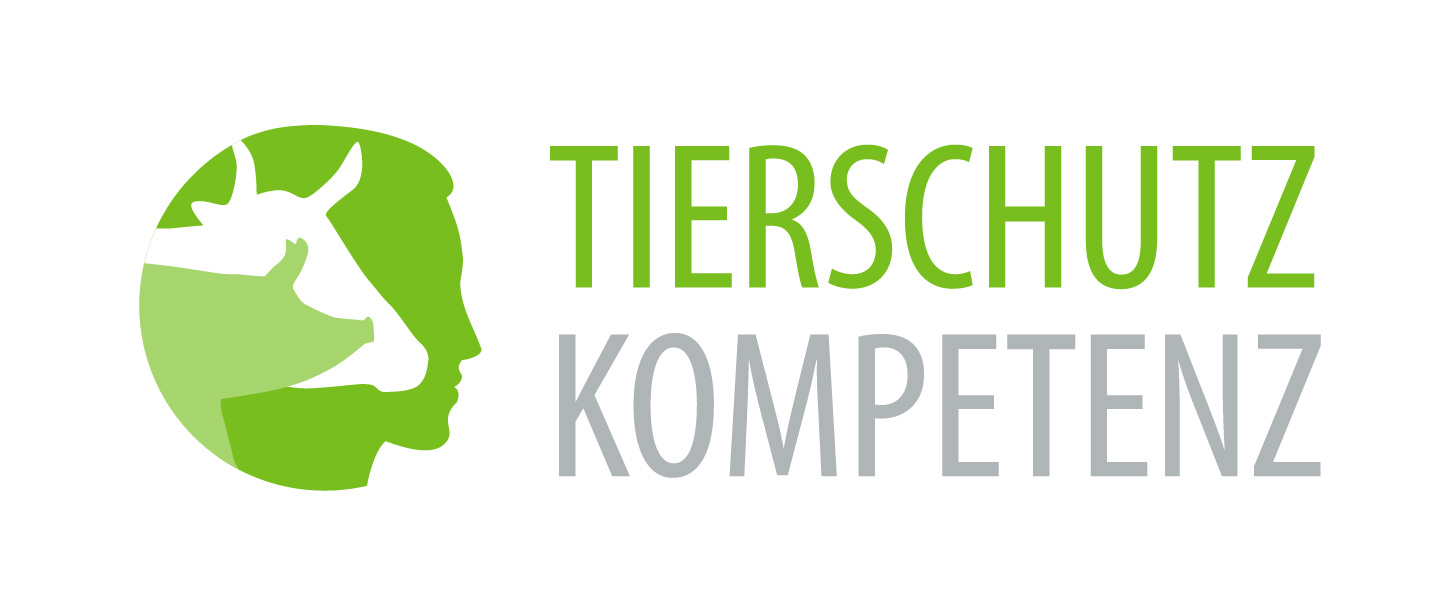Project
Animal welfare competence – animal welfare-oriented occupational competence in vocational education

Development of an individual animal welfare-oriented competence to ensure animal well-being– Concepts of teaching and learning in vocational education and training –
Links and Downloads
Hier geht es direkt zum Projekt Tierschutzkompetenz auf der Lernplattform Ilias der LWK Niedersachsen: Alle erarbeiteten Lehr-Lerneinheiten und mehr!

Up to now, animal welfare has only been a minor topic in agricultural vocational education. In this project we developed new and innovative concepts of teaching and learning therefore, in order to promote a comprehensive animal welfare-oriented competence.
Background and Objective
Animal welfare has been part of the German constitution (Grundgesetz, Article 20a) since 2002. Furthermore, in addition to the Animal Welfare Act, a wide range of regulations and guidelines for animal protection are available at both federal and state level.
Various methods and tools currently exist, which are used for on-farm assessment of animal welfare and also to verify the extent to which housing conditions meet animals’ needs. These tools have already been subject to a feasibility study and are, to a large extent, based on animal-respective resource-based indicators, for example the Guideline ‘Animal Welfare Indicators: Practical Guide - Cattle, Pigs and Poultry’ (KTBL (eds), 1st edition 2016, 2nd, updated edition 2020).
However, for many years, on-farm research has shown that animal welfare does not meet satisfactory levels and that there is a real need for improvement on many farms. Farmers tend to misjudge the animal health and welfare situation on their farms and underestimate, for example, the occurrence of lameness or other production diseases in their herds.
The vocational education of future farmers is a key factor in raising awareness of animal welfare. A proactive and routine assessment of animal welfare indicators on farms, as well as careful observation of livestock, can promote empathy towards animals. However, this topic has so far rarely been included in agricultural vocational education, vocational schools, inter-company training courses, or in agricultural training companies.
To date, there has been minimal investigation into the dissemination and use of existing tools for animal welfare assessment, especially in agricultural training companies. Therefore, we conducted a wide-spread survey on agricultural training farms in Lower Saxony.
The aim of the project was to develop and evaluate concepts of teaching and learning and training materials for the assessment and awareness of animal welfare. Due to the increasingly mechanised and digitalised work involved in livestock farming and the resulting ‘distancing’ from the animal (both literal and figurative), it is crucial that apprentices and trainees are not only made more aware of animal welfare, but also that they develop an occupational competence in this area. Comprehensive knowledge regarding farm animals and their needs, skills in animal handling and an empathetic attitude towards farm animals, could all enhance the level of competence in animal welfare. The ability to act in a reflective and responsible manner across the conflicting areas of economy, (digitalised) technology and animal welfare is crucial to future farming success.
We developed innovative concepts of teaching and learning to provide a clear understanding of animal welfare, to improve knowledge regarding the natural behaviour and needs of cattle and pigs, and to enhance skills in the observation and the identification of animal welfare issues.
This project is intended to pique interest, to stimulate a willingness to engage with the topic and to ultimately establish a comprehensive competence in animal welfare.
Target Group
- livestock and agricultural apprentices and trainees
- trainers/farmers on agricultural training farms
Approach
Our project, as set out above, commenced in November 2021, and comprises three partners:
• the Agricultural Training Centre in Echem (LBZ Echem – coordination),
• the Institute of Vocational Education and Adult Education (IfBE) of the Gottfried Wilhelm Leibniz University in Hanover, and the
• Animal Welfare working group at the Thünen Institute of Organic Farming.
The IfBE conducted an analysis of the curricula for vocational training in agriculture. They will also interview experts in agricultural vocational education and members of the target groups in an empirical field study to identify key factors of job-related socialization among these groups. At the same time, at the Thünen Institute of Organic Farming, we conducted a representative survey of trainers at agricultural training companies in Lower Saxony to determine whether guidelines for animal welfare, checklists, and assessment and monitoring tools for cattle and pigs are widely recognized and used to raise awareness of animal welfare. Additionally, research was conducted on existing animal welfare tools and assessment protocols, which were tested for their suitability as training tools in vocational education. The collected data was used to develop didactic methods that aim to foster a positive attitude toward animal welfare in livestock farming. The knowledge gained was integrated into a new animal welfare training program at the Agricultural Training and Education Center in Echem.
Results
Survey of agricultural training farms with cattle/pigs in Lower Saxony
The majority of the farms primarily use animal welfare tools based on existing data, while tools using animal-based indicators are used much less frequently. Therefore, it can be assumed that the majority of trainees in these farms do not encounter the use of animal-based animal welfare indicators and that their handling should be introduced and tested during inter-company training.
Based on the perspectives of (future) farmers and the training staff at agricultural training farms, the attitudes of the on-site trainers and the trainees toward animal welfare were investigated. It was found that aspects of animal health were particularly considered important, while aspects related to the emotional well-being and natural behaviors of the animals were given less emphasis. The agricultural trainers expressed a strong interest in further training opportunities for themselves and their trainees, particularly in handling and driving cattle and pigs.
(Further) development of teaching and learning units in inter-company training at the Agricultural Training and Education Center in Echem
Thematic aspects of the natural behavior of cattle and pigs were integrated into the teaching and learning units to derive the requirements for the housing environment and to develop skills in handling the animals (or driving them). Species-specific behavior, the housing environment, and animal welfare indicators derived from the animals were related to each other. Selected animal welfare tools were incorporated into the teaching and learning units. Additionally, a resource center for teaching materials and further animal welfare tools was created. The teaching and learning units were developed by the project consortium for the Agricultural Training and Education Center in Echem but are publicly available to other training institutions as well: In addition to implementation at inter-company training locations, the units can also be applied in vocational schools, master schools, in-company training, or as part of agricultural and veterinary studies. Furthermore, the freely accessible resource center serves trainees and students in agriculture and enables easy access to information on animal welfare competence.
A summary of the project and all further links can be found in the Thünen Ratgeber 2025/27a ( DOI:10.3220/253-2025-187).
Thünen-Contact

Involved Thünen-Partners
Funding Body
-
Federal Ministry of Agriculture, Food and Regional Identity (BMLEH)
(national, öffentlich) -
Federal Office for Agriculture and Food (BLE)
(national, öffentlich)
Duration
11.2021 - 10.2024
More Information
Project funding number: 2820MDT122
Project status:
finished
Publications
- 0
Ivemeyer S, Cimer K, Over C, Brinkmann J, March S (2025) Neue Lehr-Lerneinheiten sollen Tierwohl-Kompetenz in der beruflichen Ausbildung stärken. Trenthorst: Thünen-Institut für Ökologischen Landbau, 2 p, Project Brief Thünen Inst 2025/27, DOI:10.3220/253-2025-186
- 1
Ivemeyer S, Cimer K, Over C, Brinkmann J, March S (2025) Teaching and learning courses aim to strengthen animal welfare expertise in vocational training. Trenthorst: Thünen-Institut für Ökologischen Landbau, 2 p, Project Brief Thünen Inst 2025/27a, DOI:10.3220/253-2025-187
- 2
Ivemeyer S, Over C, Cimer K, Brinkmann J, March S (2025) Tierschutzkompetenz : Entwicklung von Lehr-Lerneinheiten für die Tierarten Rind und Schwein zur Förderung tierwohlorientierter Handlungskompetenz von landwirtschaftlichen Auszubildenden. In: Deutsche Veterinärmedizinische Gesellschaft (ed) Schwerpunkt: Wissen schützt Tiere - Ausbildung, Fortbildung, Sachkunde : 30. Internationale DVG-Fachtagung zum Thema Tierschutz, München, 13.03.-15.03.2025. 1. Auflage. Gießen: Verlag der DVG, pp 87-95
- 3
Ivemeyer S, Helmerichs J, Brinkmann J, March S (2025) Tierwohlverständnis landwirtschaftlicher Auszubildender und Motivation das Tierwohl zu steigern. KTBL Schr 11544:240-242
- 4
Ivemeyer S, Cimer K, Brinkmann J, March S (2024) Ausbildungsort landwirtschaftlicher Betrieb: Tierwohlverständnis der Ausbilder*innen und vermittelte Fertigkeiten zum Treiben von Rindern und Schweinen. In: Bruder V, Röder-Dreher U, Breuer L, Herzig C, Gattinger A (eds) Landwirtschaft und Ernährung - Transformation macht nur gemeinsam Sinn : 17. Wissenschaftstagung Ökologischer Landbau, 5.-8. März 2024, Justus-Liebig-Universität Gießen ; Tagungsband. 1. Auflage. Frankfurt am Main: FiBL Deutschland eV, pp 506-507, DOI:10.5281/zenodo.11204339
- 5
Cimer K, Ivemeyer S, Brinkmann J, March S (2024) Eine Betrachtung der beruflichen Handlungskompetenz von Junglandwirt*innen am Beispiel von Tierwohl. In: Bruder V, Röder-Dreher U, Breuer L, Herzig C, Gattinger A (eds) Landwirtschaft und Ernährung - Transformation macht nur gemeinsam Sinn : 17. Wissenschaftstagung Ökologischer Landbau, 5.-8. März 2024, Justus-Liebig-Universität Gießen ; Tagungsband. 1. Auflage. Frankfurt am Main: FiBL Deutschland eV, pp 508-509, DOI:10.5281/zenodo.11204339
- 6
Brockmann A, Kuhlmann L, Labesius B, Weise B, Meyer R, Krause F, Preuss J, Pille M, Zimmermann D, Ivemeyer S, Cimer K, Over C, Brinkmann J, March S (2024) Entwicklung und Aufbau einer individuellen tierwohlorientierten Handlungskompetenz zur Gewährleistung von Tierschutz : Lehr-Lernkonzepte zur beruflichen Aus- und Weiterbildung ; Abschlussbericht des MDT-Verbundvorhabens 2820MDT120, 2820MDT121, 2820MDT122 [Tierschutzkompetenz]. 62 p
- 7
Ivemeyer S, Over C, Preuss J, Zimmermann D, Pille M, Labesius B, March S, Brinkmann J, Weise B, Brockmann A, Krause F, Meyer R, Kuhlmann L (2024) Tierwohlkompetenz in der Überbetrieblichen Ausbildung : Fahrpläne für den Lehrgang Rind [online]. Echem: Landwirtschaftliches Bildungszentrum, 27 p, zu finden in <https://gruenetalente-niedersachsen.de/goto_lwk_crs_140.html> [zitiert am 21.11.2024]
- 8
Over C, Ivemeyer S, Preuss J, Zimmermann D, Pille M, Labesius B, March S, Brinkmann J, Weise B, Brockmann A, Krause F, Meyer R, Kuhlmann L (2024) Tierwohlkompetenz in der Überbetrieblichen Ausbildung : Fahrpläne für den Lehrgang Schwein [online]. Echem: Landwirtschaftliches Bildungszentrum, 28 p, zu finden in <https://gruenetalente-niedersachsen.de/goto_lwk_crs_1668.html> [zitiert am 21.11.2024]
- 9
Cimer K, Ivemeyer S, Hauschild J, Krause F, March S, Brinkmann J, Meyer R (2023) Entwicklung von innovativen Lehr-Lern-Settings zur Forderung einer tierwohlorientierten Handlungskompetenz von Junglandwirt*innen. In: Bibic V, Schmidtke K (eds) One step ahead - einen Schritt voraus! : Beiträge zur 16. Wissenschaftstagung Ökologischer Landbau, 07.-10. März 2023, Frick (CH), FiBL Campus. 1. Auflage. Berlin: Verlag Dr Köster, pp 770-771
- 10
Ivemeyer S, Cimer K, Brinkmann J, March S (2023) Tierwohlverständnis landwirtschaftlicher Ausbilderinnen/Ausbilder und betrieblich vermittelte Aspekte zum Umgang mit Rindern und Schweinen beim Treiben. KTBL Schr 11537:94-103
- 11
Cimer K, Ivemeyer S, Brinkmann J, March S (2023) Was brauchen wir für die Förderung einer tierwohlorientierten Handlungskompetenz von Junglandwirt:innen? In: Geßl R (ed) 30. FREILAND-Tagung / 37. IGN-Tagung Eine Frage der Haltung - 30 Jahre FREILAND-Tagung : Kurzfassungen der Vorträge an der Universität für Bodenkultur Wien ; eine Veranstaltung von Freiland Verband, IGN, Univ. für Bodenkultur, VetMedUni Wien und FiBL AT, 21. September 2023. Wien: Freiland Verband, pp 24-30

![[Translate to English:] [Translate to English:]](/media/_processed_/8/e/csm_Bildschirmfoto_2021-03-03_bearb_fc48ac88bf.jpeg)
![[Translate to English:] [Translate to English:]](/media/_processed_/8/e/csm_Bildschirmfoto_2021-03-03_bearb_ba3ec0e9d7.jpeg)






